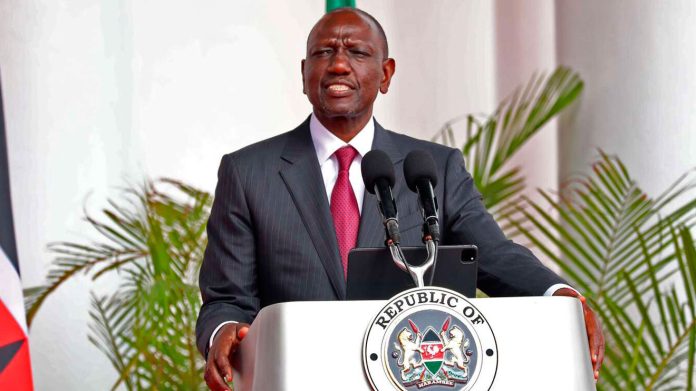Facebook Twitter (X) Instagram
On the 11th of July 2024, the political landscape of Kenya was dramatically reshaped as President William Ruto took the unprecedented step of dissolving his entire cabinet. This move comes amid mounting pressure from anti-government protests, economic challenges, and demands for accountability.
Immediate Dismissal of the entire Kenyan Cabinet:
- President Ruto’s announcement caught many by surprise. Effective immediately, all Cabinet Secretaries (CSs) and the Attorney-General (AG) have been relieved of their duties.
- Only two officials remain in their posts:
- Deputy President Rigathi Gachagua: His retention signals continuity within the administration.
- Prime Cabinet Secretary Musalia Mudavadi: A key figure in Ruto’s inner circle.
Protests and Public Outcry
- The dissolution follows weeks of sustained protests across Kenya:
- Economic Frustration: Demonstrators expressed anger over rising inflation, unemployment, and the cost of living.
- Governance Issues: Calls for transparency, accountability, and an end to corruption resonated nationwide.
- Revenue Collection Challenges: The government faced difficulties in meeting revenue targets, exacerbating fiscal strain.
Reform Agenda
- President Ruto’s decision aims to address several critical areas:
- Streamlining Operations: By starting afresh, the government seeks to enhance efficiency and effectiveness.
- Public Confidence: The move is intended to restore public trust and demonstrate responsiveness to citizens’ concerns.
- Policy Shifts: Ruto’s team is expected to focus on economic recovery, social welfare, and infrastructure development.
Impact of the Kenyan Cabinet Dissolution on State Corporations
- The dissolution extends beyond CSs:
- Chief Administrative Secretaries (CAS): Their positions are under review, with some likely to be merged or eliminated.
- Budget Reallocation: Funds allocated to various ministries will be reassessed, affecting ongoing projects.
Unity and Challenges Ahead
- President Ruto emphasized unity:
- Political Alliances: He seeks cooperation across party lines and regional interests.
- Civil Society Engagement: Dialogue with civil society organizations and grassroots movements is crucial.
- Challenges include:
- Rebuilding the Cabinet: Identifying competent, corruption-free leaders is a daunting task.
- Policy Implementation: Turning promises into tangible results requires strategic planning and execution.
Kenya stands at a crossroads. The dissolution of the cabinet is both a bold move and a risky one. As citizens watch closely, the nation’s destiny hangs in the balance.

